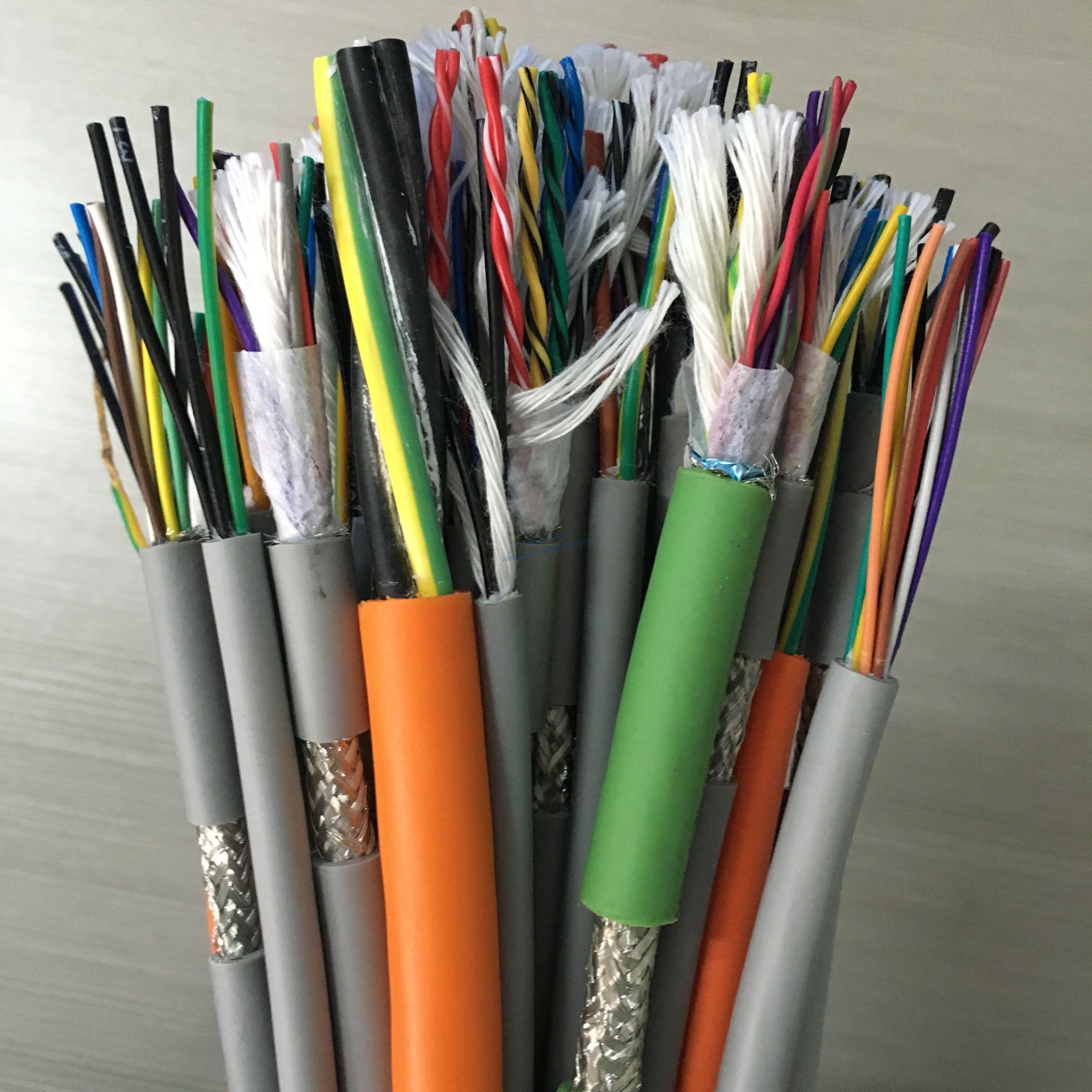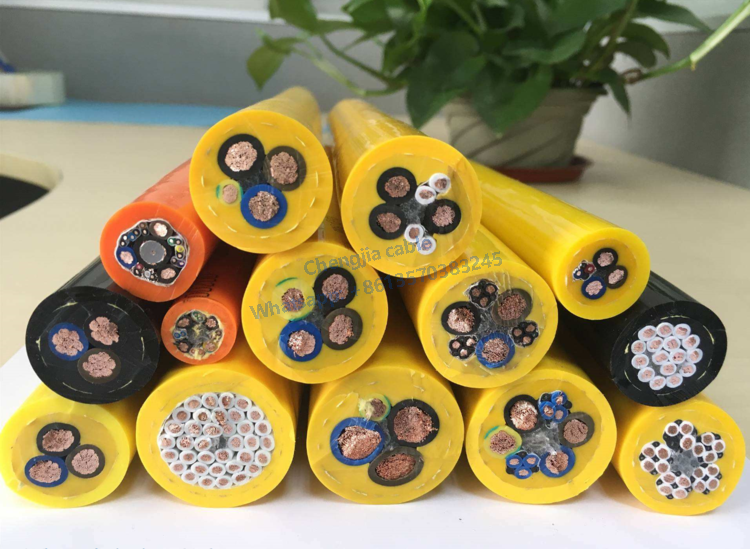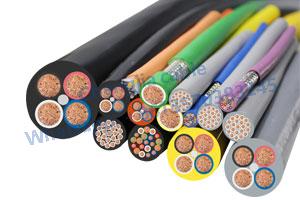Introduction to Cable Materials: TPU Cable, PUR Cable, TPE Cable, PVC Cable, and PE Cable
In the cable industry, the choice of materials is crucial for the performance and application of cables. Here’s a detailed introduction to five commonly used cable materials.
TPU (Thermoplastic Polyurethane)
TPU is a material known for its high elasticity, wear resistance, cold resistance, and oil resistance. It is widely used in cables that require high wear resistance and flexibility, such as drag chain cables. Its advantages include excellent mechanical properties, such as high hardness, tensile strength, abrasion resistance, and good low-temperature flexibility. The mechanical properties of TPU include hardness, tensile strength, compressive performance, and tear strength, and it also has good recyclability.

PUR (Polyurethane)
PUR is a polymer made through the reaction of isocyanates with polyols. It possesses properties such as oil resistance, abrasion resistance, cold resistance, water resistance, and aging resistance. It can be divided into two main categories: foamed and non-foamed. PUR is suitable for cables that have strict requirements for stability and high/low temperature resistance, such as robotic torsion-resistant cables and servo cables. PUR has a long service life and can function well at both low and high temperatures, although it is relatively expensive.
TPE (Thermoplastic Elastomer)
TPE combines the plasticity of plastics with the elasticity of rubber, offering good chemical resistance, oil resistance, and flexibility. It is often used in applications requiring high wear and flexibility, such as drag chain cables. TPE is environmentally friendly, non-toxic, safe, and offers good coloring and processing capabilities, with a wide range of hardness and a soft touch.

PVC (Polyvinyl Chloride)
PVC is a commonly used material for cable sheathing, known for its good flexibility, sturdiness, and fire, oil resistance. Depending on the hardness, PVC can be categorized into rigid and flexible types, each with its own characteristics. Although lower-end PVC materials may contain harmful substances, environmental requirements are leading to continuous upgrades in PVC materials to enhance their eco-friendliness. In the cable industry, PVC is widely used in flexible cable, control cables, and wiring applications.
PE (Polyethylene)
Polyethylene (PE) is a material with excellent electrical insulation properties, typically used for the insulation and sheath layers of cables. The properties of PE can be enhanced through cross-linking treatment, improving its resistance to deformation at high temperatures. Its advantages include being environmentally friendly, good processing performance, and outstanding electrical insulation, although its high-temperature resistance is generally average. PE is mainly used in the cable industry for waterproof cables, oil-resistant cables, and power cables.
The five materials mentioned above each have unique characteristics that suit different cable needs. TPU, PUR, and TPE are primarily used for flexible cables, while PVC and PE hold significant positions in various applications due to their cost-effectiveness and good performance. Companies select appropriate materials based on their manufacturing requirements to meet diverse market demands.

Contact: Mandy Dai
Phone: +86-13570383245
E-mail: sales@flex-cables.com
Whatsapp:0086-13570383245
Add: No. 12 building, No.46,Shilou Section,Shilian Road, Panyu District,Guangzhou, Guangdong,China
We chat